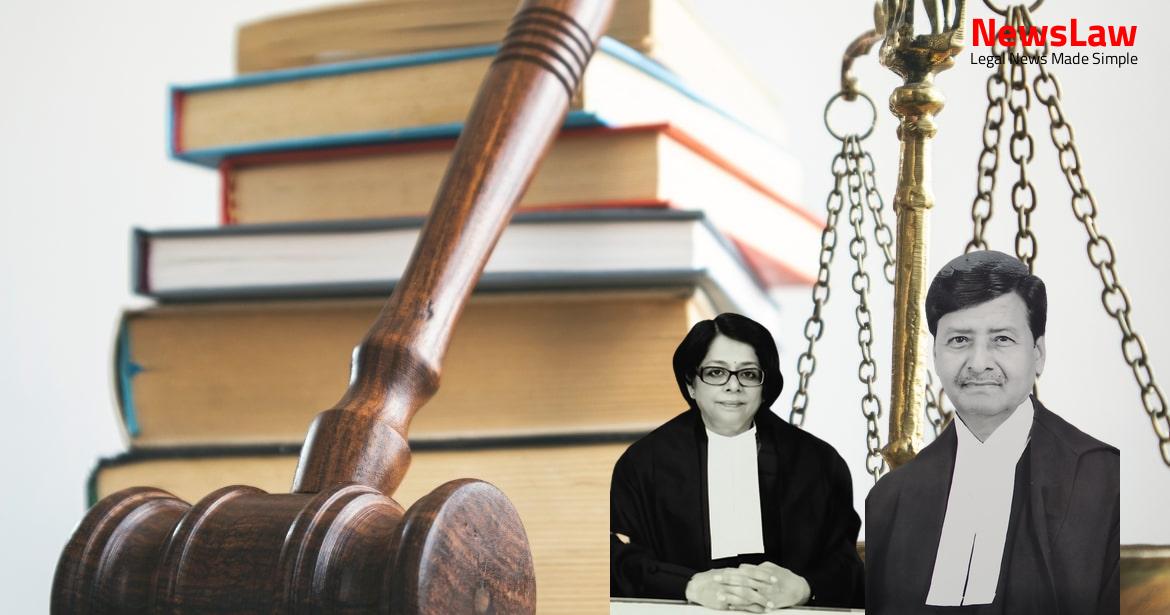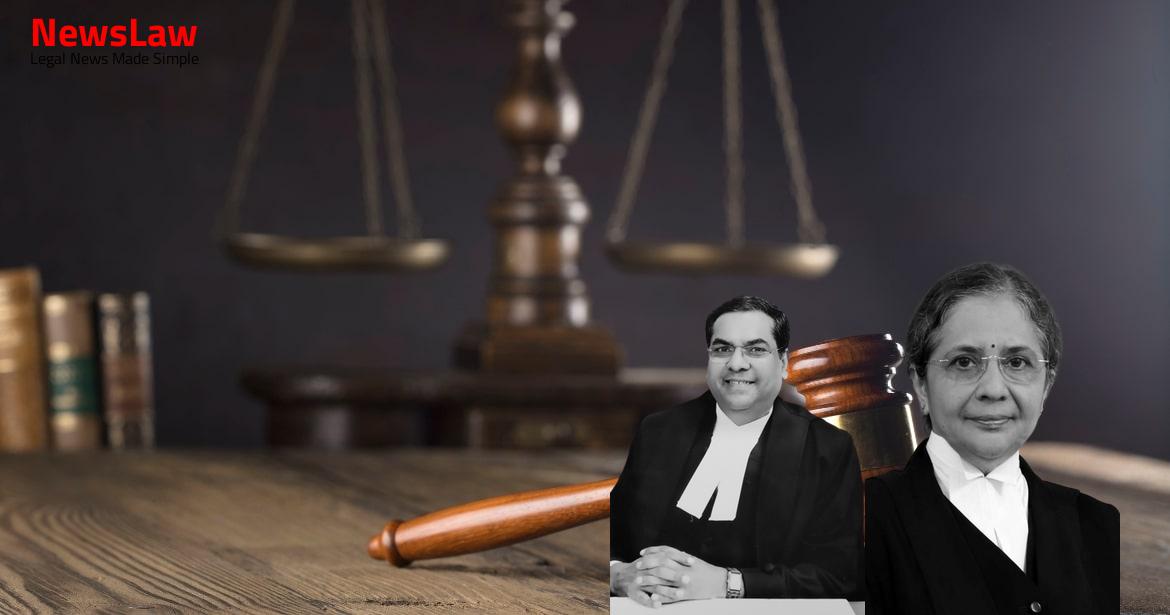The case between the State of West Bengal and the respondents revolves around the tragic incident of suicide and allegations of abetment. The petitioner, State of West Bengal, had filed an appeal against the High Court’s judgment acquitting the respondents of charges under Section 306 IPC. The case delves into the complexities of abetment and the evidence required to substantiate such claims, making it a crucial legal matter for scrutiny by the Supreme Court of India.
Facts
- Intimacy developed between the victim, named Indrajit, and the first respondent during coaching sessions.
- Charge-sheet filed under Section 306/34 IPC against all three accused after investigation.
- Case committed to the Fast Track Court in Calcutta, numbered as Sessions Case No.11 of 2006.
- Respondents filed an application under Section 482 Cr.P.C. before the High Court in C.R.R.No.1817 of 2007, later directed to raise all points before the Trial Court.
- Objections raised by respondents during framing of charges claiming no case made out against them for the alleged offence under Section 306/34 IPC.
- Allegation that the deceased victim and first respondent had decided to marry but the first respondent did not protest against his parents’ objections.
- Victim, a painter and artist, went to the house of the first respondent to finalize the proposal of marriage but became mentally perturbed upon rejection.
- Victim committed suicide the next day, leading to the filing of a case under Section 306 IPC against the respondents.
- Two suicide notes found, one mentioning abuse by first respondent’s parents and the other accusing the first respondent of cowardice.
- Allegation that first respondent’s parents addressed the victim as a call-girl and rejected the marriage proposal.
- State of West Bengal filed an appeal against the High Court’s judgment discharging the respondents of the charge under Section 306 read with Section 34 of Indian Penal Code.
- The learned Additional District and Sessions Judge framed charges against the accused based on the probability of conviction under Section 306 IPC.
- The High Court, however, overturned the decision citing that labeling the deceased as a call-girl did not amount to instigation or abetment of suicide.
- The High Court referenced previous cases where similar utterances like ‘go and die’ were not considered as abetment of suicide.
- Insulting or abusive conduct of the accused alone cannot establish abetment of suicide unless it reasonably suggests the intent of the accused towards such consequence.
- After analyzing relevant case laws, the High Court set aside the Trial Court’s order and acquitted the accused from the charge of abetment.
Also Read: Partnership Dissolution Case: Legal Heirs’ Rights Upheld
Arguments
- The victim visited the accused to finalize the date of marriage but was verbally abused by the accused’s parents.
- The victim developed intimacy with the accused and committed suicide the next day.
- The de facto complainant had appointed the first respondent as an English teacher for the deceased victim.
- The victim’s sister tried to console her and promised to speak to the accused for the marriage.
- The appellant-State argued that there was enough material to charge the accused with abetment of suicide.
- Rulings in cases like Soma Chakravarty vs State and Union of India vs. Prafulla Kumar Samal were cited to support the argument for framing charges.
- The High Court, without considering the material on record, allowed the accused’s application.
- The defence claimed lack of material to frame charges and that the High Court’s decision was well-reasoned.
- One of the respondents had passed away during the appeal, abating the appeal for him.
Also Read: State of Madhya Pradesh v. Udham and Others – Legal Judgment Summary
Analysis
- The charge under Section 306/34 is based on the suicide letters and statements during investigation.
- Parents of the victim called her a call-girl on 05.03.2004, a day before she committed suicide.
- The evidence does not support the allegation of abetment by the respondents.
- The suicide cannot be solely attributed to the actions of the respondents.
- There was no instigation or encouragement by the respondents for the victim to commit suicide.
- The accused in the case did not create circumstances that left the deceased with no choice but to commit suicide.
- A word spoken in anger without intending the consequences cannot be considered instigation.
- In a case where a husband told the deceased wife to ‘go and die’ during a quarrel, it was deemed that this was not direct instigation for suicide.
- The material presented in the case was not sufficient to proceed with trial by framing charges under Section 306/34 IPC.
- There was no evidence of goading, solicitation, or insinuation by any of the accused towards the victim to commit suicide.
- The appeal does not hold merit to interfere with the High Court’s judgment.
- The judgments cited by the State’s counsel do not support the arguments made.
- The High Court’s decision was well-reasoned and not in need of intervention.
Also Read: The Baby Girl Acquittal Case
Decision
- The appeal is dismissed.
- The decision is made based on the RPC (Original Names) of the judgement.
Case Title: THE STATE OF WEST BENGAL Vs. INDRAJIT KUNDU
Case Number: Crl.A. No.-002181-002181 / 2009



